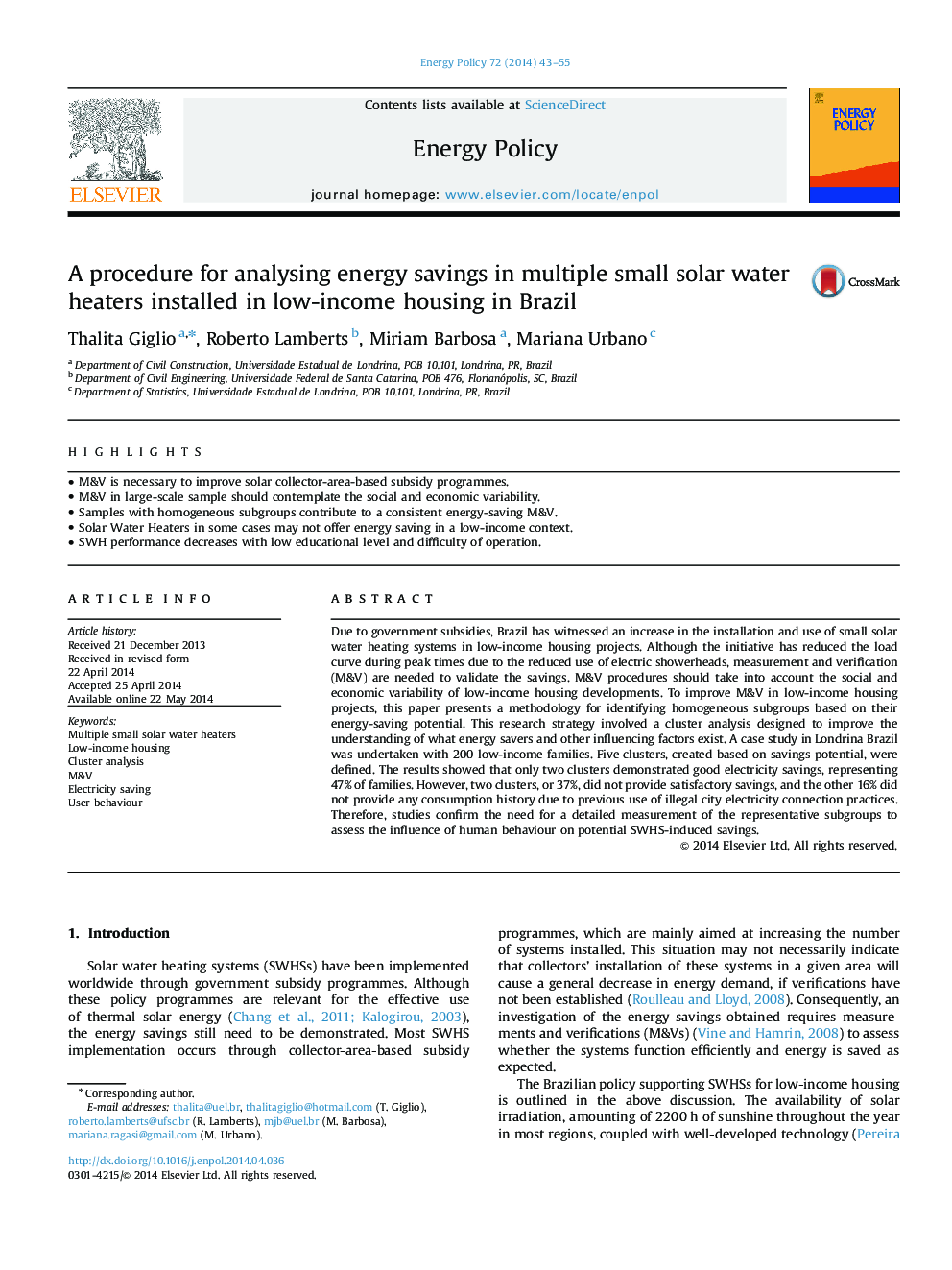| Article ID | Journal | Published Year | Pages | File Type |
|---|---|---|---|---|
| 7401795 | Energy Policy | 2014 | 13 Pages |
Abstract
Due to government subsidies, Brazil has witnessed an increase in the installation and use of small solar water heating systems in low-income housing projects. Although the initiative has reduced the load curve during peak times due to the reduced use of electric showerheads, measurement and verification (M&V) are needed to validate the savings. M&V procedures should take into account the social and economic variability of low-income housing developments. To improve M&V in low-income housing projects, this paper presents a methodology for identifying homogeneous subgroups based on their energy-saving potential. This research strategy involved a cluster analysis designed to improve the understanding of what energy savers and other influencing factors exist. A case study in Londrina Brazil was undertaken with 200 low-income families. Five clusters, created based on savings potential, were defined. The results showed that only two clusters demonstrated good electricity savings, representing 47% of families. However, two clusters, or 37%, did not provide satisfactory savings, and the other 16% did not provide any consumption history due to previous use of illegal city electricity connection practices. Therefore, studies confirm the need for a detailed measurement of the representative subgroups to assess the influence of human behaviour on potential SWHS-induced savings.
Related Topics
Physical Sciences and Engineering
Energy
Energy Engineering and Power Technology
Authors
Thalita Giglio, Roberto Lamberts, Miriam Barbosa, Mariana Urbano,
